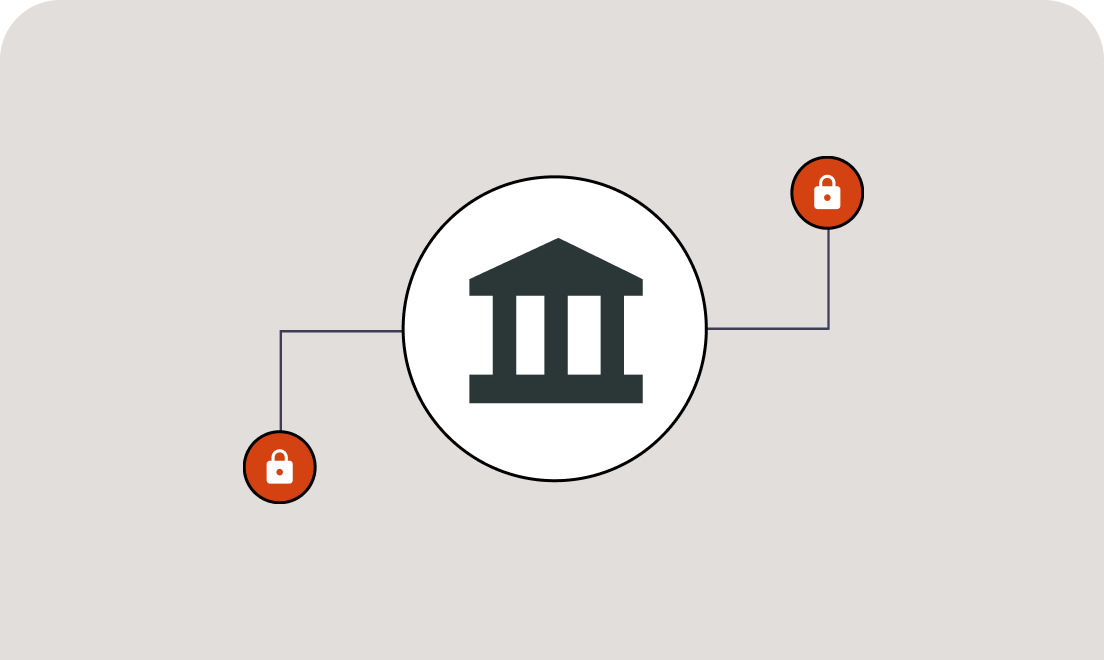Blog
What is open banking, and how can your businesses benefit?
January 5, 2023
Editorial Team

The global open banking market is just starting to hit an inflection point and is expected to grow at a compound annual growth rate percentage in the high twenties, to reach a market size of at least a hundred billion dollars by 2030. Furthermore, the concept has applications that you may already be using in your personal or business life without realizing and may have significant benefits for your business, especially if you act early.
In this post, we’re going to demystify the concept of open banking, talk about how you may already be using it, and introduce you to key ways your business can benefit.
Why inaccessible, locked-away bank account data is a problem for everyone
For a long time, access to bank account funds and data — information such as balances, spending habits, cash flow, and so on — has been locked away and accessible only to the account holder and the bank.
This may make sense on the surface. Balances and other bank account data, whether for individuals, families, or businesses, are private, and security is extremely important.
But much more recently, this inaccessibility has also brought about problems.
For example, whether you are a business or consumer, the most common way to pay online is to use a credit card, or perhaps Paypal or another online wallet. Although these are funded by your bank account, they add one or multiple layers in between you and the merchant. And as such, they introduce complexity and third parties to what could be a very straightforward transaction.
Likewise, as a consumer, there are many occasions when sharing bank account data such as your balance, cash flow, and so on, which could be helpful. For example:
If you have several accounts and want an overview of all of them.
If you want to get a mortgage
If you want to rent a new office or cars for employees for your business.
For many of these, the lender would run a credit report on you, and on top of that you may also need to obtain various digital or paper documents. These documents are populated with unstructured financial information, which can be manipulated or even stolen, and need to be put into a usable format before the lender, rental, or leasing company can use it — a slow, manual process, open to human error.
Open banking unlocks bank data for speed, convenience, and security
Open banking is the concept that banking data is much more useful if it is accessible to third parties — under a high level of security and with the explicit permission of the account holders.
It is a concept that is gaining traction globally, but the way it is being applied varies from region to region and country to county. For example, the U.S. is currently taking a market-driven approach, but the EU is taking a regulatory approach, with laws mandating that banks enable open banking. Initiatives are also taking place in Australia, Canada, India, Hong Kong, and Mexico, among others.
One other thing to understand is that open banking as a whole refers to two key areas; payments and account data.
Payments and account data, liberated
For making purchases, open banking-powered payments simply mean that your customers can pay directly from their own bank account into your business account. Credit card networks and other third parties are eliminated from the payment flow. Therefore, open banking payments are applicable to any business that transacts online, making it an incredibly large potential market.
For sharing account data through open banking, the use cases are a little narrower but potentially interesting for specific types of businesses. For example, if you are a lender, leasing company, utility, or similar, every time you onboard a client you need to make a credit-worthiness assessment of your customer. Currently, these assessments are made primarily with credit scores. But if you could access bank account data in a secure, compliant way, you would have arguably a much more objective picture of their financial health, enabling you to make more personalized product offers.
The big opportunity for your business: Open banking-powered payments
If you sell online, you almost certainly accept credit card payments, and probably Paypal at least. You have to. Consumers today expect these payment methods and have been led to believe that they are the safest and most reliable way to pay online.
But you probably also know that accepting these payment methods is expensive. In the US, card fees typically cost 1-3% of each and every transaction that you make — the highest fees in the world. And on top of that, if you do high volumes of payments, you may also invest in fraud management solutions, driving the cost of doing business higher still. You have a stark choice — swallow these costs or pass them on to your customers.
This is where payments with open banking gets very interesting:
Reduced cost. Payments are 70-80% cheaper for businesses when compared to credit cards. Credit card processors charge higher fees, plus there are no acquirers, networks, risk solutions, or other extra parties taking a cut — just the consumer, the payment method provider, and the business, meaning less of a need for the business to raise prices to pay the credit card companies.
Lower fraud. In the US, payments run on the ACH network rather than the credit card networks, and ACH fraud is an order of magnitude lower than credit card fraud. Furthermore, new solutions such as Link Money are leveraging machine learning decisioning to drive the fraud rate lower still.
Improved customer experience. Your customer authenticates the payment in their bank app with their PIN or biometric credentials such as thumbprint or face, rather than manually entering a string of numbers (which can also be stolen). This has the extra benefit of further reducing the chance of fraud.
Even greater benefits for subscription-based businesses
Beyond these compelling advantages lies one other that is particularly interesting to subscription-based businesses. Most credit cards expire every three years, which means you can expect somewhere between two and a half and three percent of your customers’ cards to expire per month. Other issues such as hard declines (credit card payment failures that are permanent and cannot be retried) and chargebacks, further eat into the LTV of your customer.
But open banking-powered payments drastically mitigate all these issues. Bank accounts do not expire, so there is no chance of interruption and no need for expensive ancillary services such as account updaters or network tokens to rescue expired cards. Likewise, hard declines are not an issue. And if a customer does have insufficient funds, smart decisioning can make this known instantly, meaning the transaction will be declined on the spot, without additional fees, and merchants will avoid associated NSF fees and time delays.
And finally, benefits for customers are also compelling
Customers and businesses alike have been conditioned to believe that credit cards and online wallets are the most reliable ways to pay online today. However, what is good for your business is also ultimately good for your customers — and cheaper transactions, lower fraud, and better experience eventually flow back to them, whether in the form of lower prices, more product investment, or simply uninterrupted access to their subscription service.
If you are facing challenges such as competitive pressures, inflation, a declining macroeconomic outlook, or any combination of these, payments with open banking offer an interesting opportunity to reduce costs, and improve the customer experience.
If you want to learn more, contact us.